The wardens of Britains small islands on daily life with little more than thousands of puffins for company
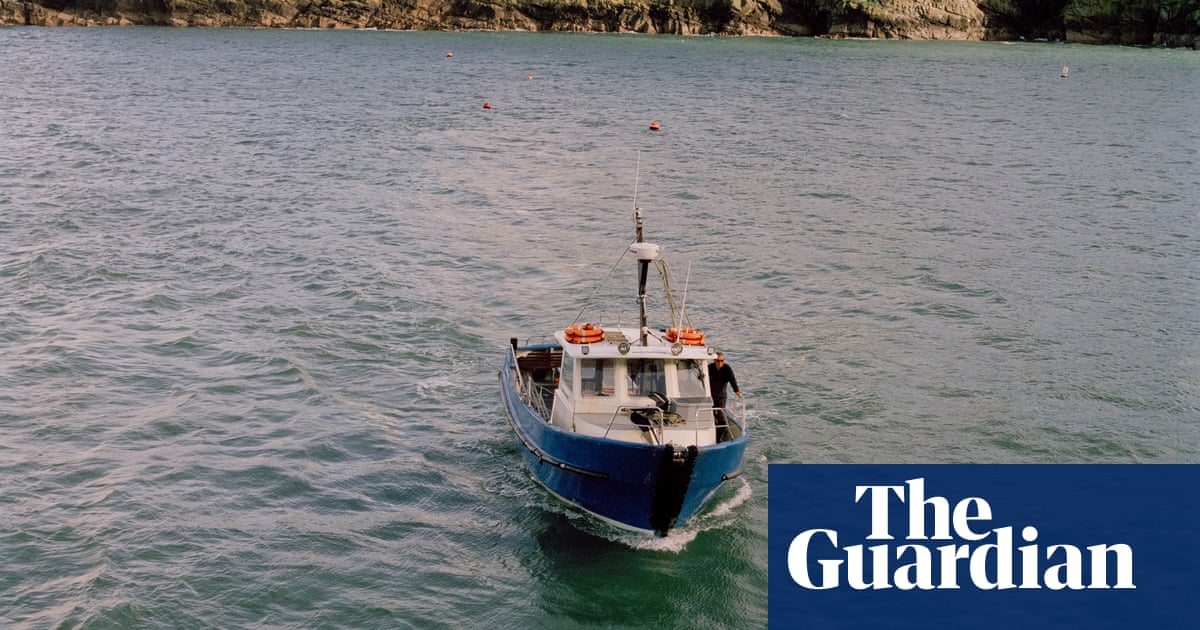
After supper, while Eddie Stubbings was washing up, huge flocks of puffins would come whirling past his kitchen window. Later, when the sun had finally dipped into the ocean, the Skomer night filled with the bizarre caterwauling of 350,000 pairs of manx shearwaters, which fly under the cover of darkness to burrows dotted across the small island.
Living on the island was absolutely amazing, says Stubbings, 40. Alongside his partner, Bee Bueche, 41, he has completed six years working on Skomer, 720 acres of seabird-populated rocks off the Pembrokeshire coast.
Whenever a job advertisement for warden of a small island appears, hundreds of islophiles apply, seeking to flee the tyranny of modern life. It wasnt always this way: historically, many of the 6,200-odd small islands that make up the British archipelago have been prisons, literally or figuratively, with their isolated residents eventually choosing to leave for a mainland that offers more comfort, companionship and opportunities.
Now there is a reverse migration, as people escape the centre for the periphery, chasing the liberation of less choice and intimacy with nature. As conservation charities have found a new use for small islands as sanctuaries for rare seabirds formerly empty ones have been repopulated by wildlife wardens.
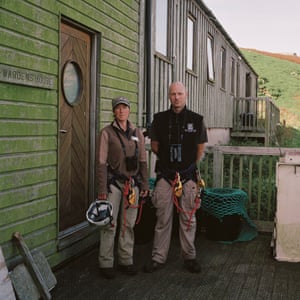
Stubbings and Bueche left at the end of last year, but they have not had enough of small islands: they are now doing conservation work on Islay, in Scotland, after a spell helping seabird researchers on the Balearic island of Sa Dragonera. They met on Malta, where they were volunteering to protect persecuted raptors.
The appeal of a small island, Bueche says, is not just being closer to nature it is being self-sufficient. Everything that breaks you have to fix yourself, she says. Its challenging and exciting you have to look after yourself, use your brain, initiative and imagination. When things break, I love solving these puzzles. Even not being cosy is great you wake up and feel the cold and chop wood and put the woodburner on. It makes me feel really alive.
Like most people overseeing the wildlife of small islands, Stubbings and Bueche were drawn to this work through their love of birds. Skomer was absolutely incredible for them, Stubbings says: thousands of guillemots, razorbills, puffins and, most of all, the noisy, nocturnal shearwaters. Many people struggle to sleep in this cacophony; Stubbings and Bueche found it soothing.
It was a visit to Skomer that inspired the photographer Alex Ingram to document the lives of small-island wardens. As part of his project, The Gatekeepers, he has visited five islands around the UK and plans to capture life on 12 in total. His evocative images tantalise us with illimitable horizons and an alternative way of life.
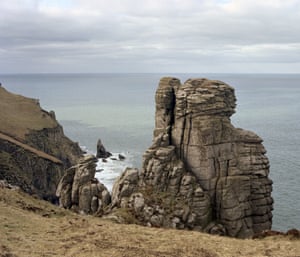
People who escape to islands where humans are a tiny minority might be assumed to enjoy solitude, if not misanthropy. Plenty of people apply for jobs on Skomer seeking to be alone, Stubbings says, but they would be disappointed. You have to tell them thats really not what youre going to find. It is a hustly bustly workplace, he says. You never get five minutes to yourself. People come and knock on your door asking questions at 8pm, 9pm, 10pm.
Their working day as Skomer wardens began with a call to the boatman to see if the weather would permit boats to run. Skomer receives 250 day trippers during the peak bird-breeding months of May and June and accommodates 16 overnight guests. As well as birds and seals to count, there are beds to make, staff and volunteers to organise, and VIPs from international ecologists to film-makers to support. People probably want to hear were wild and remote and cut off from the world, Stubbings says. The brutal truth is, these days, youre not. Everyone has got internet and mobile phones in their pockets and there are plenty of people on the island.
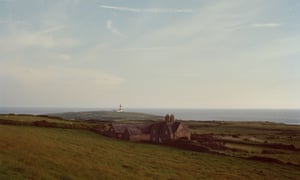
Stubbings and Bueches neighbours on nearby Skokholm, Richard Brown, 38, and Giselle Eagle, 34, are also a couple unsurprisingly, island warden partnerships are a popular way to cope with the rigours of the job. They have it slightly quieter: a mere 90,000 pairs of manx shearwaters to monitor and only two boats a week, bringing 20 paying guests to the island.
Skokholm is where small-island wardening began. The naturalist and writer Ronald Lockley took a lease on the island in 1927 and established Britains first bird observatory there, studying its puffins and writing prolifically, and romantically, about his island life.
Brown and Eagle live in a lighthouse, surrounded by puffins, but appear more practical than dreamy. Were a bit like tour reps, Brown says, as if striving to make his job seem particularly unappealing. When people first think about island residents, they think of an isolated existence. But I imagine we meet more people during the year than most people on the mainland.
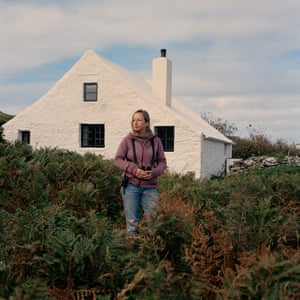
They receive a fresh food delivery by boat once a month and have inspiring news for mainlanders worried that Britains imported salad supplies will dry up after Brexit. Theres no reason not to eat well on an island. We have a lot of root vegetables, Brown says. Weve got loads of tinned and dried stuff if our delivery doesnt happen, Eagle laughs.
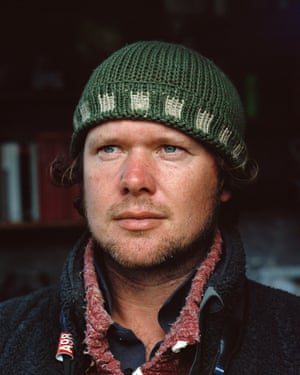
It sounds austere, but Brown says it is much more luxurious than when he began. When I started out on the island, it was still gas lights and no hot water unless you boiled it. These days, weve got solar power and solar hot water and a 4G signal. It has got much easier. Ive so much respect for Lockley and others who did it back in the day.
The wardens sense of service to a place is rather like that of a vicar. Both roles have a pressing feeling of being at the mercy of forces much grander than oneself in a wardens case, the tides, landscape and weather. On Skokholm, Brown and Eagle are also contributing to long-term wildlife recording. There has been daily monitoring of birds on Skokholm for 90 years and weve done six of those, Brown says. We definitely do feel we are carrying on something very special. Its a vocation. Its a way of life.
The weather is the force that most shapes the life of Dean Woodfin Jones, the warden of Lundy, across the Bristol Channel from Brown and Eagle on Skokholm. Everything we do is dictated by the weather mother nature is truly in charge here, he says.
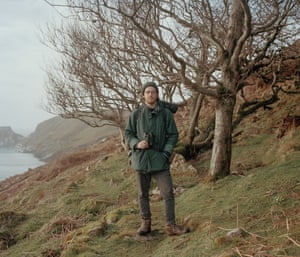
Lundy 1,100-acres of granite, sitting high above the waves feels like a huge ship and is likened to one by Woodfin Jones, who sees Lundys 29 residents as a kind of crew. They are employed by the Landmark Trust, the charity that protects the island. When I visited a few years back, I asked one islander how she got on with her fellow residents. Carefully, she replied. Small island communities can be claustrophobic. As Stubbings puts it: If you cant cope with the insularity, youre going to explode, because youre on a small island with a small group of people. You still feel it. You just have to cope with it.
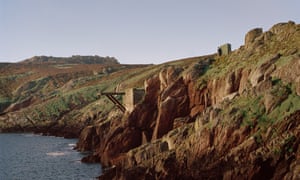
Small talk is crucial on small islands. Social bonds must be renewed each day and misunderstandings nipped in the bud before they blossom into feuds. But Woodfin Jones is ebullient about Lundys tiny society, mostly populated by couples in their late 40s seeking a change of life after their children have left home. You get some brilliant characters here. Weve got a really good group at the moment. Everyone gets on really well. Were quite social and like having a drink in the sunshine or going snorkelling together. Theres always tiffs between people, but they tend to work themselves out most of the time.
Unlike on Skokholm, Skomer and Lundy, the permanent population of Enlli, or Bardsey, off the tip of the Lln peninsula, north-west Wales, are not all employed by a mainland charity. There is a tenant farmer and his family; the wardens of an independent bird observatory; and a ferryman, Colin Evans, who doesnt live on the island, but is the son of the last island-born resident.
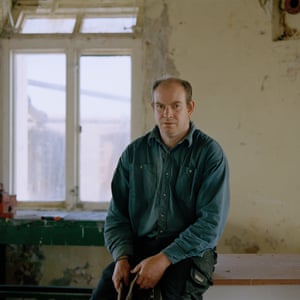
For the past three years, Sin Stacey was island manager of Bardsey after quitting her job in Cardiff. She had holidayed there since she was six and during a volunteering break as an adult met her partner, Mark Carter, an assistant warden. It was a second home for me, so it was an absolute honour to then call it home, Stacey says.
She would walk across the island and suddenly hear the rushing of a peregrines wings. It was the equivalent of a car zooming past, but there are no cars on Bardsey. That would give you goosebumps, she says.
The currents between the island and the mainland make it famously inaccessible: did she feel cut off? Thats a very mainlander thing to say, she says. You go three or four weeks without a boat, but I didnt feel cut off, because I was prepared for that. When the post was delivered in the winter, it was like Christmas.
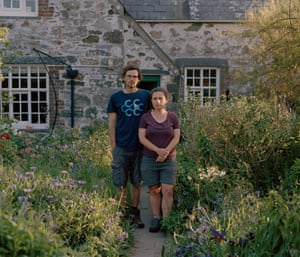
As well as wildlife, Bardsey was once home to early Celtic Christian monks. Like Lindisfarne in England and Iona in Scotland, it has been a destination for many subsequent generations of religious seekers. The past, wrote Adam Nicolson in Sea Room, his story of the Shiants, a tiny trio of Hebridean islands, is unusually present on small islands. Stacey agrees. Bardsey is not just a conservation area: its also farmed; island waters are still fished by fishermen who live on the island; withies [willows] grown on the island are still used to make baskets. You feel like youre in living history.
The role of small islands as sanctuaries for endangered wildlife seems wholly positive, but this view was challenged by Evans, Bardseys boatman, when I visited a few years ago. Tourism, he felt, was degrading. Conservation groups too often sought to control small islands with mainland rules and constrain their evolution. If you dont have development, what have you got a museum? Im keen on sustainable development and Im keen on work, he told me. The islands fish and meat is the only thing weve got left, and both have been devalued. So, were stuck with tourism and this industry of conservation, which depends on rules and subsidies from elsewhere, which makes the island dependent. How can we kickstart the island into how it once was, economically independent and proud?
Since we spoke, Evans who lives on the mainland with his young family has bought Bardseys lighthouse and wants to open an island brewery and even a helipad.
Stacey agrees with Evans that Bardsey must have an identity beyond tourism. There used to be over 100 people living there and it was a better place to live than the mainland. Im of the opinion that its still a better place to live, she says. Although she is back living on mainland Wales, she is still a trustee of Bardsey Island Trust and supports plans for an island orchard to cultivate Bardseys famous variety of apple, and to lease one of the islands 10 holiday lets to a long-term resident. We need people with that drive to make it work economically. This can go hand in hand with conservation. I dont think they should be in conflict, Stacey says.
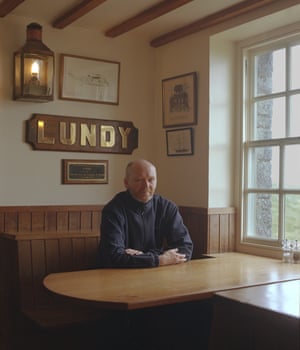
Her long-term goal is to return to Bardsey, but she is living on the mainland now because she wanted to put her energy into a new project and is considering having a family. Im nearly 30, so if I want kids I wouldnt have wanted to have them there, because my job was so physical, she says. While there are couples raising young children on islands so small they dont have a school, it is notable that most island couples have grownup children or none at all.
Every small islander seems permanently touched by their life as a minority species, surrounded by salt water, space and, occasionally, peace.
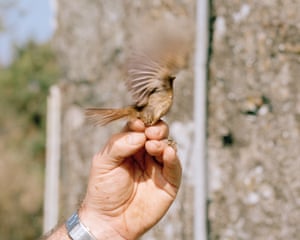
Stubbings and Bueche departed Skomer because Stubbings had long dreamed of working in the Arctic. Its not for everyone, Bueche says of small island life. If you wanted a family, youd really struggle, but we decided this life is for us and were not going to have a family. She finds her appreciation of the mainland deepened by her small-island exile. A hot shower! Central heating! A comfy bed! If you fancy a cucumber, you can go to the shop and get it. When you live on the mainland, you dont get any elation from going and buying a cucumber. After being on an island, you start to really value these things again.
If you would like a comment on this piece to be considered for inclusion on Weekend magazines letters page in print, please email [email protected], including your name and address (not for publication).
Read more: http://www.theguardian.com/us





